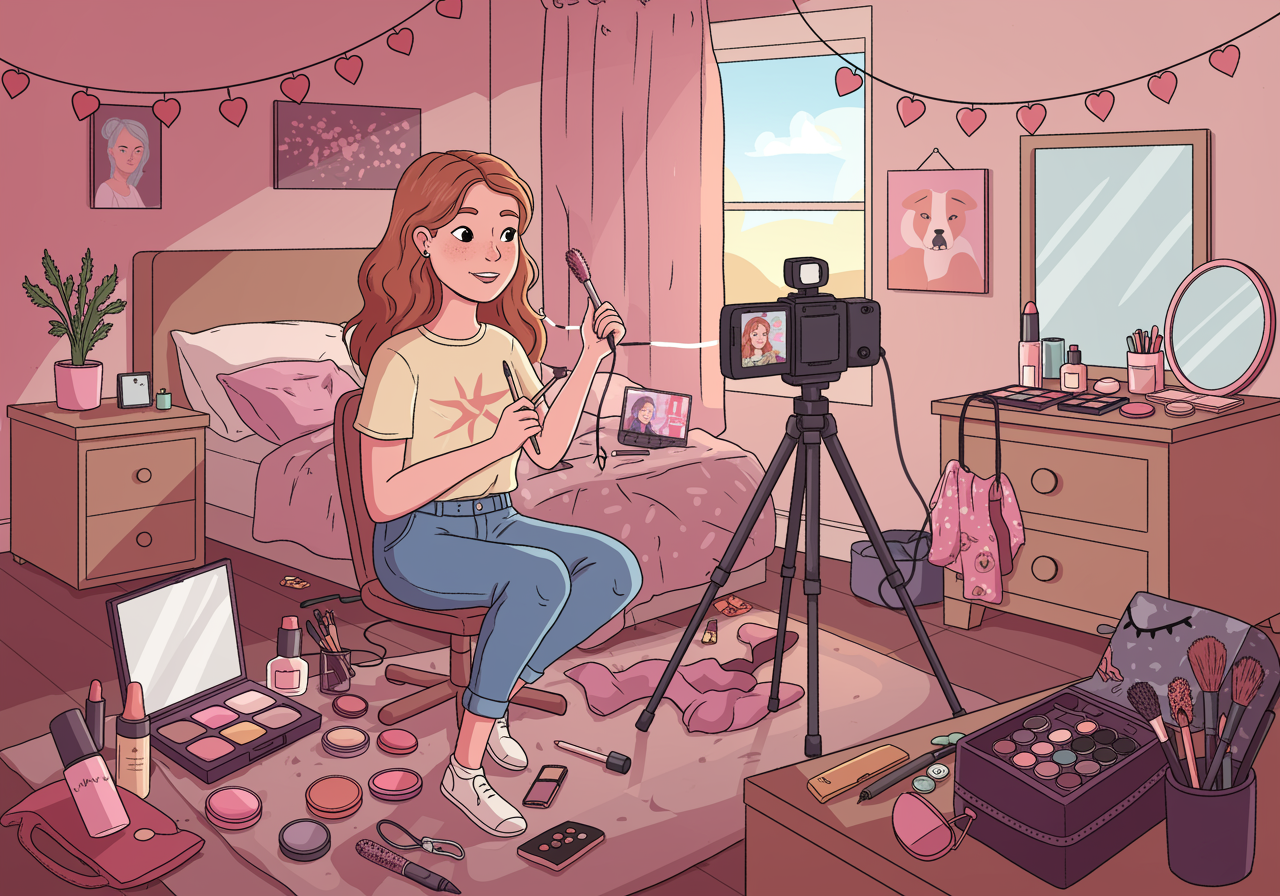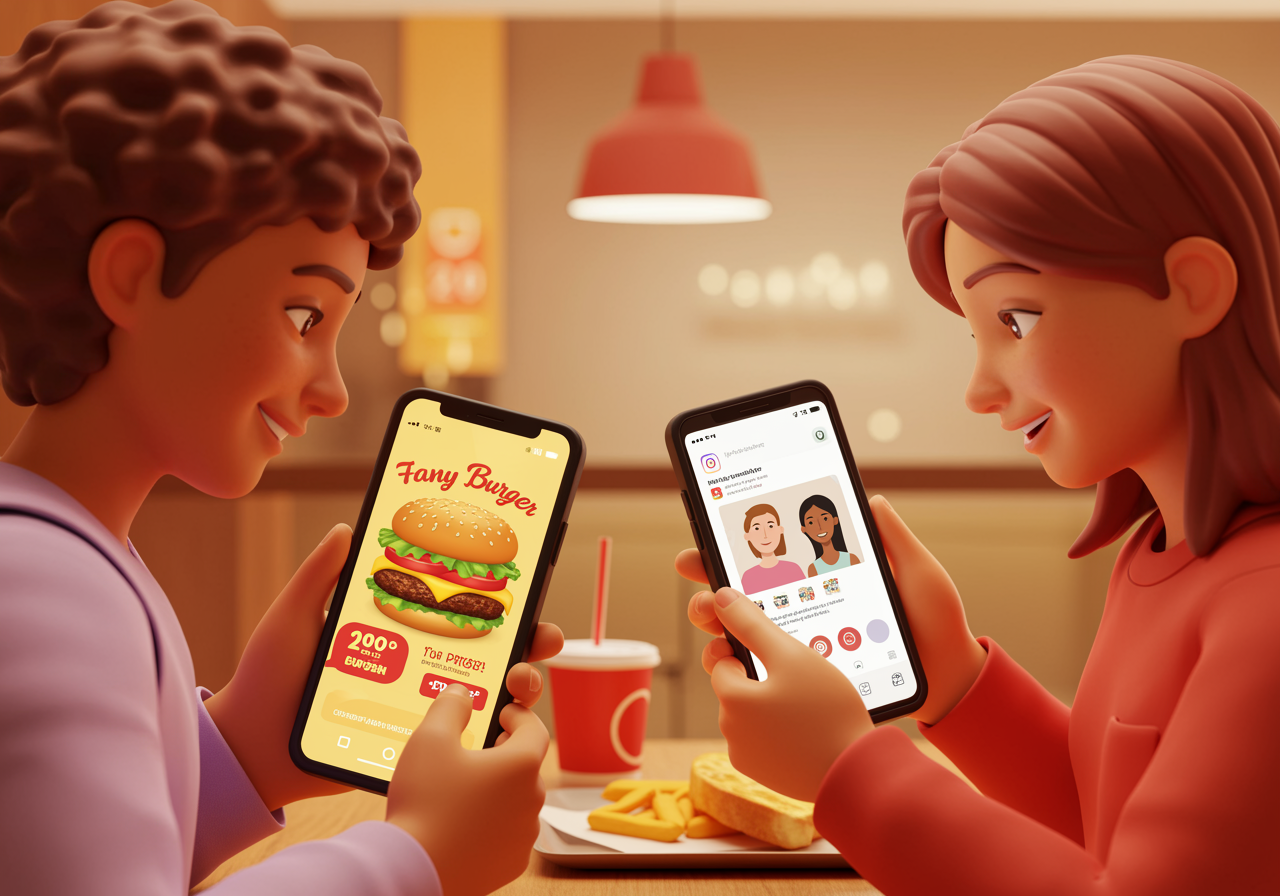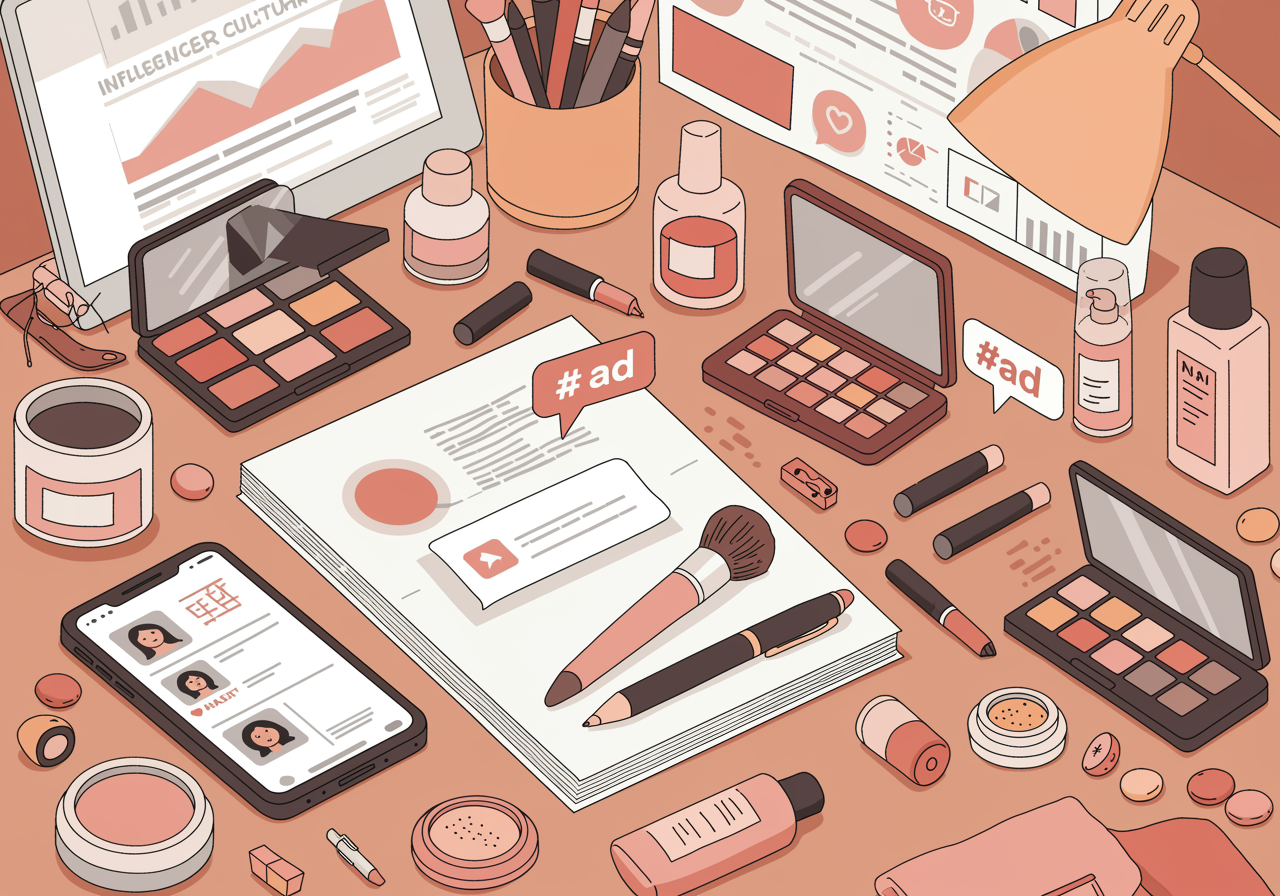The Influence Effect: Why Your Teen Trusts Emma Chamberlain More Than TV Ads

Cracking the code on why a makeup tutorial feels more trustworthy than a million-dollar commercial
Discover why your teen’s favorite YouTuber has more influence over their beauty choices than glossy magazine ads, and learn how to navigate this together.
Overview
Ever wonder why your teen is more likely to buy mascara because their favorite TikToker mentioned it than because they saw a fancy commercial? It's not just teenage rebellion – there's actual psychology at work! Understanding why influencers feel more trustworthy than traditional ads helps families navigate the wild world of social media marketing together. This isn't about judging what's 'right' or 'wrong,' but about building critical thinking skills that'll serve your teen for life.

Understand in 30 Seconds
Get up to speed quickly
- It Feels Like a Friend's Recommendation: Influencers share their daily lives, making followers feel like they know them personally. When they recommend a product, it feels like getting advice from a friend, not a sales pitch.
- They Show the 'Real' Results: Unlike polished ads with perfect lighting, influencers often show products in their messy bedrooms with natural lighting. This 'realness' makes their opinions seem more honest and trustworthy.
- They're More Like Us: Most influencers started as regular people, not supermodels or celebrities. When a 20-year-old college student loves a lip gloss, it feels more relatable than when a movie star promotes it.
- Interactive Trust Building: Influencers respond to comments and create a two-way conversation. This interaction builds trust over time, unlike one-way traditional advertisements that just talk at you.
Real Life Scenario
Situations you can relate to
Imagine you're choosing between two restaurants. One has a fancy billboard with a perfect burger photo and celebrity endorsement. The other has no ads, but your friend just posted on Instagram about their amazing experience there, showing real photos of their messy but delicious meal. Which would you trust more? That's exactly what happens with beauty products! When your favorite YouTuber films themselves trying a new foundation in their bathroom mirror, showing how it looks after a full day, it feels way more real than a commercial with perfect lighting and professional makeup artists. Your brain thinks, 'This person is just like me, so this product will probably work for me too.' But here's the plot twist – that 'casual' recommendation might actually be a carefully planned business partnership!

Role Play
Spark a conversation with “what if” scenarios
What if you were creating a 30-second TV commercial for a new lip balm?
- Role play: Have your teen script and 'film' a traditional commercial with dramatic music and perfect lighting. Then create an influencer-style review in their bedroom. Compare how different they feel to watch!
What if you had to convince a friend to try your favorite snack?
- Role play: Role-play two scenarios: one where you're a formal spokesperson reading from a script, and another where you're casually telling your friend why you love it. Notice which feels more natural and convincing.
What if you were trying to spot the difference between genuine recommendations and paid partnerships?
- Role play: Watch influencer content together and play 'detective' – look for disclosure hashtags like #ad or #sponsored, and discuss how the tone changes when something is promoted versus mentioned casually.
FAQs
Frequently asked questions people want to know
Are influencers always lying when they recommend products?
Not at all! Many influencers genuinely use and love the products they recommend. The key is learning to tell the difference between authentic enthusiasm and paid promotions.
Why don't traditional ads work as well anymore?
Traditional ads feel too polished and sales-focused. People, especially teens, crave authenticity and want to hear from people who seem 'real' and relatable.
How can we tell if an influencer is being honest?
Look for proper disclosure of partnerships, check if they show both pros and cons of products, and see if their recommendations align with their usual content style.
Examples in the Wild
See how this works day to day
- Studies show that 92% of consumers trust influencer recommendations over traditional advertising (Digital Marketing Institute)
- TikTok's #EverythingShower trend drove millions in beauty product sales through user-generated content rather than paid ads (Business Insider)
- Glossier built a billion-dollar beauty brand primarily through influencer partnerships and user-generated content instead of traditional advertising (Harvard Business Review)
- Gen Z consumers are 1.3 times more likely to make purchases based on social media posts than millennials (McKinsey & Company)
In Summary
What you should know before you start
- Influencers feel more like friends than salespeople, making their recommendations seem more trustworthy and personal
- The 'realness' of influencer content – messy rooms, natural lighting, honest reactions – contrasts sharply with polished traditional ads
- Interactive relationships built over time create stronger trust than one-way advertising messages
- Both traditional ads and influencer marketing are business strategies – the key is developing critical thinking skills to evaluate all recommendations
Pro-tip for Parents
You got this!
When your teen shows you an influencer's product recommendation, resist the urge to immediately dismiss it as 'just marketing.' Instead, ask curious questions: 'What makes their opinion feel trustworthy to you?' or 'How do you think they chose this product to talk about?' This opens dialogue and helps them develop their own critical thinking skills rather than feeling lectured. Remember, they're not being 'fooled' – they're responding to a sophisticated form of marketing that feels more personal and authentic.

Keep an Eye Out For
Find these examples in everyday life
- Notice when your teen mentions wanting products they saw on social media – it's a perfect conversation starter about influence and marketing
- Watch for disclosure language like #ad, #sponsored, or #partnership in influencer content your family enjoys
- Pay attention to news stories about influencer marketing regulations and FTC guidelines – these make great discussion topics about transparency
Explore Beyond
Look up these related research topics
- How do algorithms decide what content we see, and how does that affect what products we discover?
- The psychology of parasocial relationships – why we feel close to people we've never met
- How traditional advertising is adapting to compete with influencer marketing in the digital age